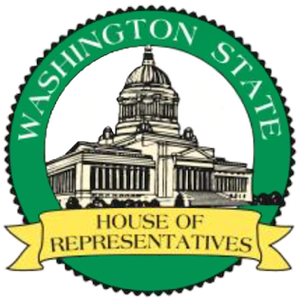The Washington State House of Representatives (WA House) convenes floor sessions to read, debate, amend, and vote on legislation.
Second and Third Reading
- SB 5796 - "Restructuring cannabis revenue appropriations."

The Washington State House of Representatives (WA House) convenes floor sessions to read, debate, amend, and vote on legislation.
Two changes to a striking amendment were debated—one for quite some time—before representatives passed a bill modifying intended cannabis tax revenue appropriations.
Here are some observations from the Friday March 4th Washington State House of Representatives (WA House) afternoon session.
My top 4 takeaways: